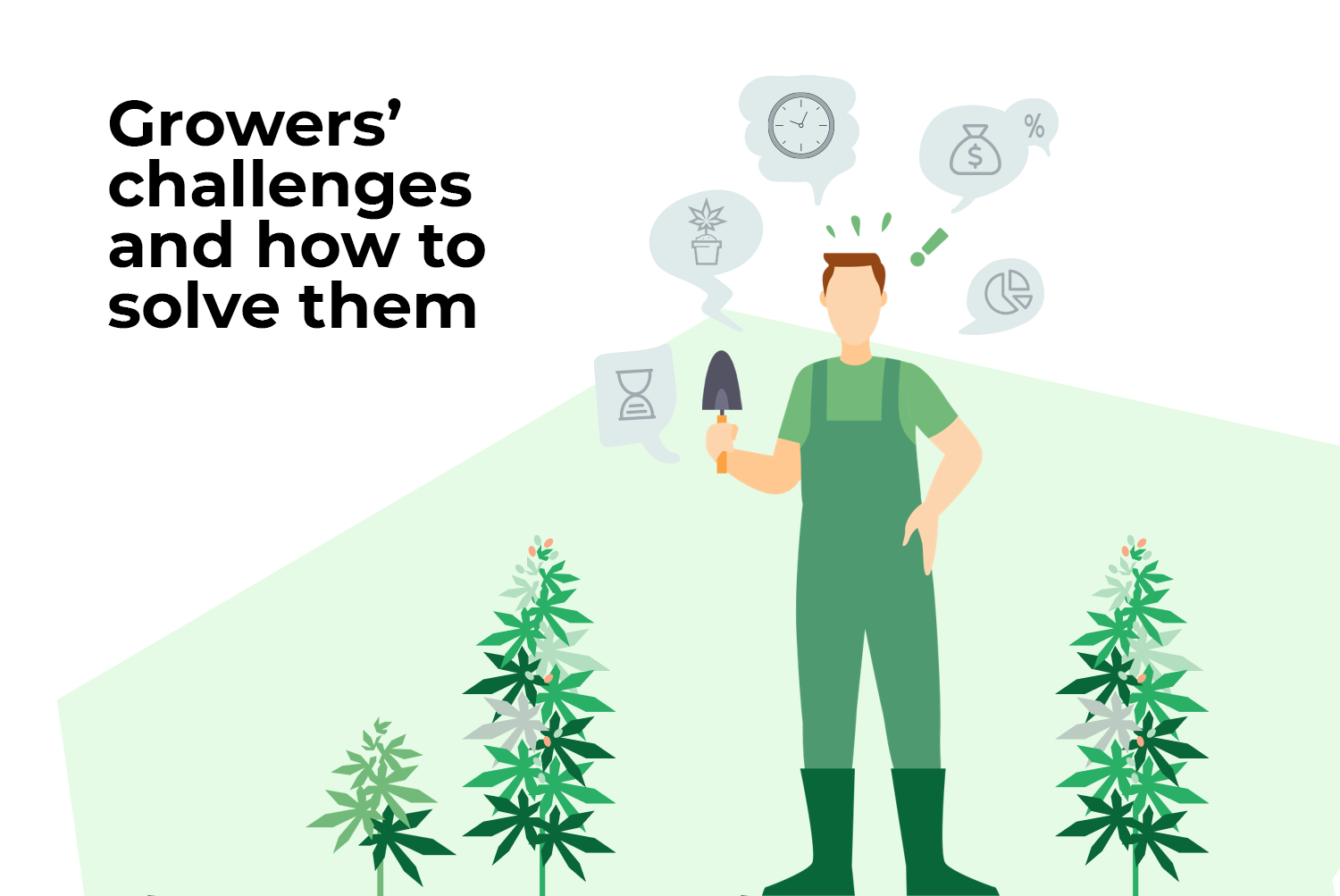
The information provided in this article is for general informational purposes only. While we endeavour to provide accurate and up-to-date information, there may be instances where information is outdated or incorrect. The contents of this article should not be taken as legal advice nor should it be relied upon in making any business, legal or other decisions. We encourage readers to consult with a qualified legal or professional advisor to obtain proper advice based on your unique circumstances. Cannavigia disclaims any liability for any loss or damage arising out of or in any manner connected with the use of or reliance on the information provided in this article.
We are a business in its infancy. That means that there is no rule book and few places to turn to when we encounter problems. Ironically enough we all seem to encounter the same problems. Deon Maas spoke to Cannavigia’s Head of Consulting, Elias Galantay, to talk about nine problems that cannabis cultivators encounter and how to solve them.
1. Sourcing compliant starting material
First, we need to highlight the source of the issue: In most European countries, cannabis can only be cultivated if the starting materials (seed and clones) were registered in the EU plant variety database. While this system serves its purpose for agricultural and industrial large-scale production it leaves out a great deal of the genetic variety of the cannabis plant which is needed if the plant is grown for its secondary metabolites (eg. cannabinoids, terpenes, flavonoids).
Therefore, if someone is facing the challenge to enter the cannabis market they must first define their end product and then make sure how to acquire the appropriate genetics with the proper documentation and permits. It is helpful to work with starting material vendors who can provide documentation of origin, phytosanitary certificates and, if in Europe, plant passports.
2. Everything takes longer than planned
“No matter how hard you work on getting everything just right, there will be setbacks and these setbacks will cost time and money. Your planning needs to be conservative”, says Elias. You shouldn’t try to push anything into a box that it doesn’t want to fit into. Know this from the beginning and plan accordingly by adding 50% on top when you start working on your plan.
3. Access to seed money is restricted as investors are scared of the business
When you come from the underground it is sometimes difficult to get legitimate investors to trust you. This means that you have to change your approach. Getting seed money is a mixture of a relationship-based network and speaking the right language. You need to have a solid road map to get to investors and set your goals. Focus on a new way of doing business. Be open about your aims and goals. Your investor wants to feel safe entrusting their money to you.
4. There is pressure from investors for a quick profit
Everybody thinks they are going to make a lot of money really quickly when that first harvest comes in. This is not the case. It is important that you manage the expectations of investors and not overplay their monetary returns, because if you do, there will be problems and questions to answer. Keep your plans clear and transparent.
5. Everything costs more than planned
Another day, another challenge that needs to be solved in a cannabis production facility. You cannot plan for it, but you have to control it. The only way to control it, is to budget for it. As is the case with “everything takes longer than planned”, “everything costs more than planned” needs to be foreseen and budgeted for, even though you have no idea what it may be.
6. There are no elders to guide the new cultivators
“Everybody is still saying this, but it’s changing”, says Elias. There is a whole new generation that has given us lots of people to look up to. There are new role models. The problem now is to choose your heroes carefully. The people that you look up to as industry leaders need to share your values of sticking to processes.
7. Too many cultivators pretending to be master growers
It was like this for a long time, but it’s also changing. Test the credibility of the people you want to work with. It is necessary to make sure that they can grow, but also how they can handle stress, because growing is a stressful business. Look if they have the correct attributes. There are qualities a master grower has to have. Make sure yours have it.
8. The bureaucracy is not your friend
When dealing with the bureaucracy you know exactly what the rules are. That’s why it’s called a bureaucracy. Stick to the rules, do not try to bend them because bureaucrats do not like that. Be ready with your documents, have specialists or consultants that help you along, make things traceable. Leave a paper trial. Let your work be accessible, secure und understandable for all stakeholders.
9. Conditions are constantly changing – law, people and the environment
You have to stay adaptable and flexible. A good network and good relations will help you get through a tough time. If you want to survive you have to work diligently. Be aware of changes before they happen and have the ability to switch to what is needed. Be vigilant.
Do you have any questions on cultivation, the bureaucracy behind or how you can make your business traceable? Find more information on our consulting page or contact us – we are happy to help you.
Comments